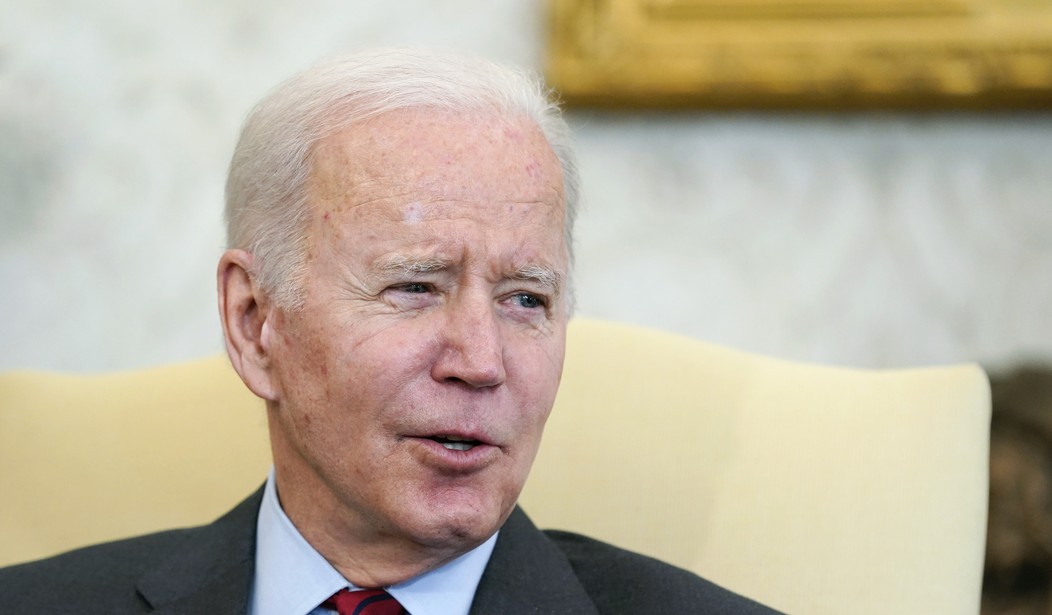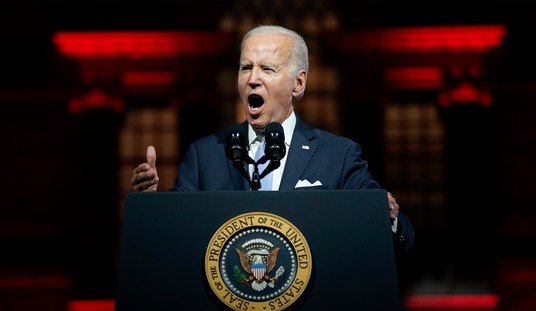No matter what Joe Biden will try to do to shift the blame away from him and his administration for the growing threat of inflation, it will stick to him like a political tar baby with no way for the president to extricate himself.
Biden and radical Democrats are blaming oil companies for high gas prices, grocery stores for high food prices, and clothing stores for high clothing prices — instead of the policies he and the Democrats have enacted that makes those higher prices inevitable.
Even when Biden has a chance to do something to actually bring costs down, he chooses to enrich his union cronies rather than give Americans a break.
Congress recently enacted a $1 trillion infrastructure bill to fix roads and bridges and unnecessarily fund improvements in broadband internet. But almost all of the $500 billion in construction projects that will be authorized by the bill will fall under the government’s Davis-Bacon rule — a New Deal-era rule that mandates “prevailing wages” be paid on federal construction projects.
Until 1982, the “prevailing wage” was subject to the “30 percent rule” meaning that for any particular area, the prevailing wage would be based on the highest wages in that area, as long as they were paid to at least 30 percent of workers.
Naturally, this meant that the “prevailing wage” was the “union wage,” freezing many open shop contractors out of the bidding. Then the Labor Department eliminated the “30 percent rule,” and competition increased and costs went down.
For Our VIPs: Biden’s Russian Oil Embargo Proves He Has No Strategy for Dealing With Putin
Now, Biden’s Labor Department wants to partially reinstate the 30 percent rule, which will be a boon to Biden’s organized labor backers and raise costs significantly.
“The revisions seem ill-timed,” writes Bosch, “given the current high levels of inflation and a recently enacted infrastructure spending program. The increased labor costs that would result will contribute to higher inflation and reduce the number of infrastructure projects that can be pursued.”
The department is dismissing those concerns. The 1982 rule changes that eliminated the 30 percent rule, it claims, “were based in part on a criticism of the [Davis-Bacon] Act itself,” rather than on worries about inflation. “Even if concerns about an inflationary effect on government contract costs or speculative effects on the national macroeconomy were used to justify eliminating the 30-percent rule, the department does not believe such reasoning now provides either a factual or legal basis to maintain the current majority rule.”
Of course, this wouldn’t be the first time the Biden administration ignored warnings about possible inflation in order to accomplish political objectives. Labor unions may very well get their bigger payday—the rest of us will keep paying more and getting less.
The problem with reinstating the 30 percent rule is the way Davis-Bacon wage determinations are made. A worker in Chicago will make more per hour than a worker in a suburb just 50 miles away. And yet, the way that the law will interpret the “prevailing wage,” the suburban company will have to pay the worker as much as the Chicago worker. It’s patently unfair to the non-union contractor and adds substantial cost to a project.
Biden had a real opportunity to ignore the union’s demands and try to control construction costs. It’s a pity his Justice Department isn’t going to investigate his union friends for price gouging.









Join the conversation as a VIP Member